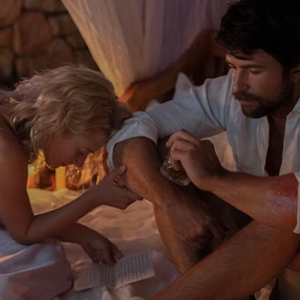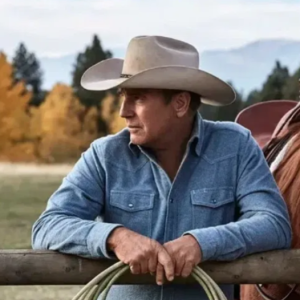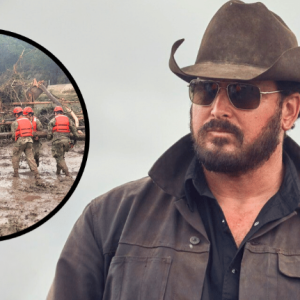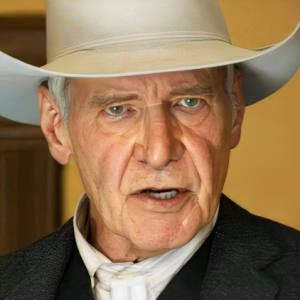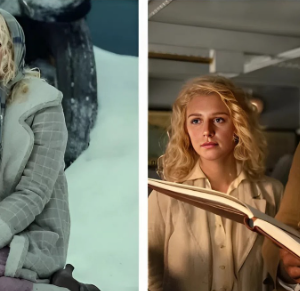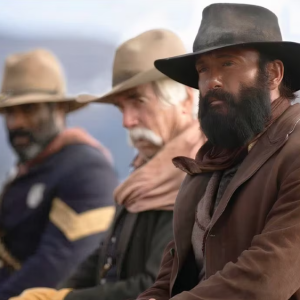Television often presents characters whose initial appearances are deceptively simple, only for deeper layers to emerge. In Taylor Sheridan’s acclaimed Yellowstone prequel, 1923, Jacob Dutton, portrayed by the legendary Harrison Ford, initially appears to be the quintessential Western hero. With his rugged demeanor, unwavering courage, and a commanding presence that harks back to classic frontiersmen, he seems like the steadfast patriarch destined to defend his family and their sprawling Montana ranch against all odds. This perception is further cemented by Ford’s iconic status, having embodied countless heroic figures throughout his storied career. Yet, even the seasoned actor himself challenges this straightforward interpretation, asserting that Jacob Dutton is far from a simplistic hero.
In candid interviews, Harrison Ford has delved into the intricacies of Jacob, making it unequivocally clear that the character, despite his admirable qualities, is not one to be idolized. Ford’s portrayal transcends the archetypal Western protagonist, instead presenting a man forged by the brutal realities of his time. He emphasizes that the very complexity of Jacob Dutton was what drew him to the role. “This is not a hero,” Ford stated, “This is a complicated man who does some bad shit and then goes on with his life. And I think that’s a very interesting kind of character to play, and not one that frequently comes my way.” This statement alone invites audiences to look beyond the superficial image of a fearless rancher and examine the darker shades of his character.
The narrative of 1923 quickly substantiates Ford’s assessment. From the very first episode, Jacob Dutton’s methods of maintaining order and justice on his vast, untamed land are stark and uncompromising. A particularly chilling instance involves his summary execution of four men without trial, a shocking display of vigilante justice that immediately shatters any illusion of him adhering to a simple moral code. His actions are often brutal, and his leadership, while effective, is undeniably rooted in fear and force. This stark realism contrasts sharply with idealized depictions of the American West, presenting a protagonist who, while dedicated to his family and land, operates in a moral grey area, often making choices that are ethically dubious but pragmatically necessary for survival in a lawless era.
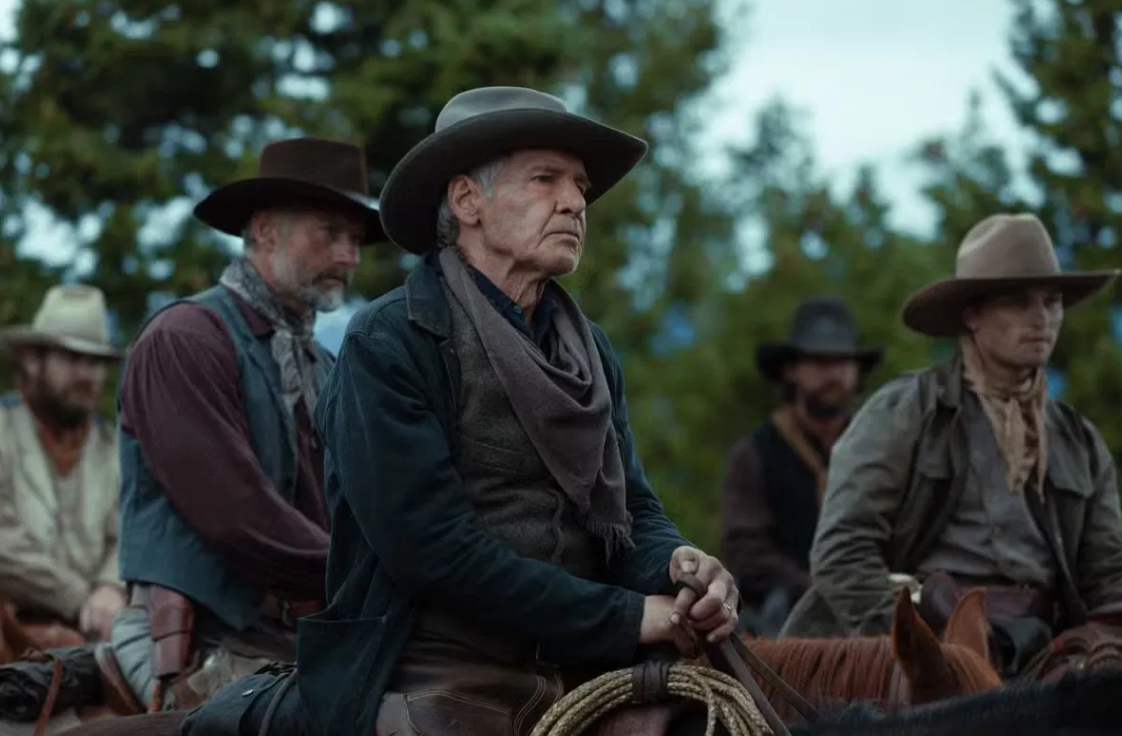
The challenges faced by Jacob and the entire Dutton family in 1923 are monumental, demanding such drastic measures. The series unfolds against a backdrop of immense societal upheaval in the early 20th century, including the ravages of the Great Depression, the enforcement of Prohibition, and the lingering scars of World War I. For the Duttons, these external pressures manifest as relentless land disputes, cattle rustling, and the encroachment of modernity. Jacob is not merely fighting bandits; he is battling the very forces of progress and the erosion of the frontier way of life. His “bad shit” acts, therefore, can be viewed through the lens of a man desperately trying to preserve his family’s legacy and protect what little they have in a world rapidly transforming around them. He embodies the raw, often brutal, spirit required to tame and hold onto a piece of wilderness, highlighting the immense personal cost of such an endeavor.
Harrison Ford’s nuanced performance is crucial in conveying this complexity. He imbues Jacob with a world-weary gravitas and an underlying stoicism that hints at the heavy burden he carries. Despite the character’s harshness, Ford allows glimpses of vulnerability and deep-seated love for his family, particularly his wife Cara (Helen Mirren) and nephew Spencer (Brandon Sklenar). This duality prevents Jacob from becoming a caricature, instead painting a portrait of a man shaped by his environment and forced to make impossible decisions. Ford’s decision to take on a role that deliberately subverts his heroic image speaks volumes about his artistic integrity and his desire to explore more profound, human stories.
Beyond Jacob’s individual character, 1923 itself aims for a deeper, more realistic portrayal of the West, a theme that Ford openly appreciates. The series deliberately moves beyond simplistic “Cowboys and Indians” narratives, delving into the socio-economic complexities, the often-overlooked struggles of Native American communities, and the harsh realities of survival on the frontier. It portrays a world where justice is often self-administered, resources are scarce, and violence is an ever-present threat. This depth and realism contribute significantly to the show’s critical acclaim and its resonance with audiences who crave more than just escapist entertainment.
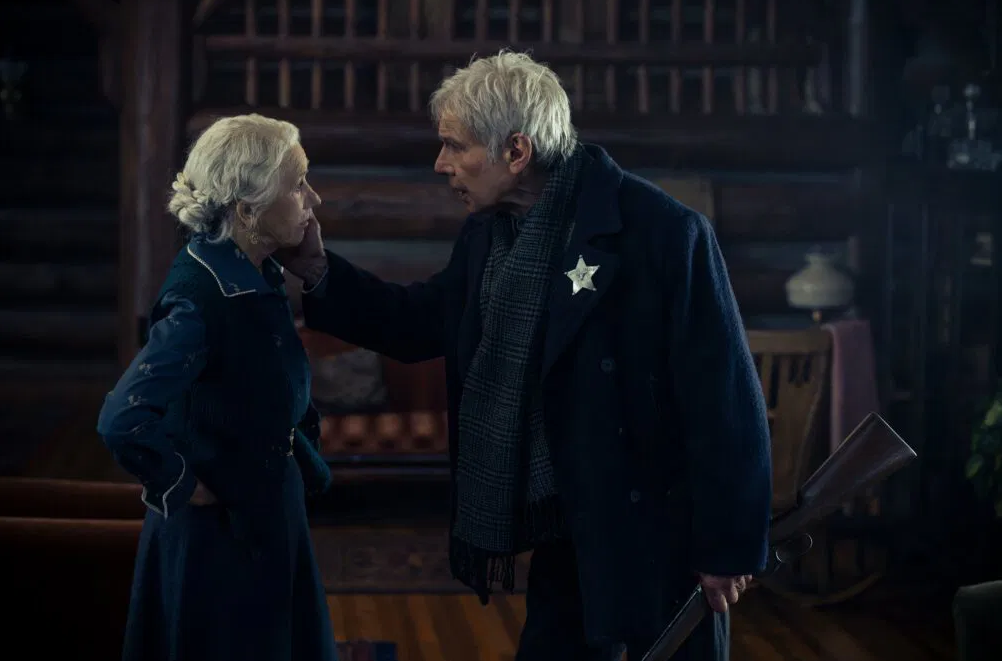
As the Yellowstone universe continues to expand, the future of characters like Jacob Dutton remains a topic of considerable speculation among fans. With rumors circulating about a potential next chapter titled 1944, questions naturally arise regarding Harrison Ford’s continued involvement. Despite the inherent challenges of fitting an aging character into a future timeline, Ford has indicated an openness to reprising his role. When asked about a return for 1944, the actor playfully remarked, “I’m still alive,” adding, “If (Taylor Sheridan) asks nice.” While lighthearted, this response suggests that the iconic actor is not averse to revisiting Jacob Dutton, provided the narrative opportunity is compelling and offers a meaningful continuation of his complex journey.
The possibility of Jacob Dutton’s return, even in a limited capacity or through flashbacks, would undoubtedly excite fans eager to witness further evolution of the Dutton saga. Given the timeline of 1944, which would place Jacob in his late 70s or early 80s, his role would likely shift from that of an active rancher to a more advisory or symbolic figure. However, his enduring spirit and the profound impact of his past actions would undoubtedly continue to shape the destiny of the Yellowstone ranch and the subsequent generations of Duttons. Harrison Ford’s portrayal of Jacob Dutton stands as a testament to the power of nuanced character development, offering a powerful reminder that even in the most heroic narratives, true depth often lies in the shadows and complexities of a character’s true nature. Jacob Dutton is not a hero in the conventional sense, but a fiercely pragmatic, morally ambiguous, and utterly compelling figure whose legacy is central to the very fabric of the Yellowstone universe.
